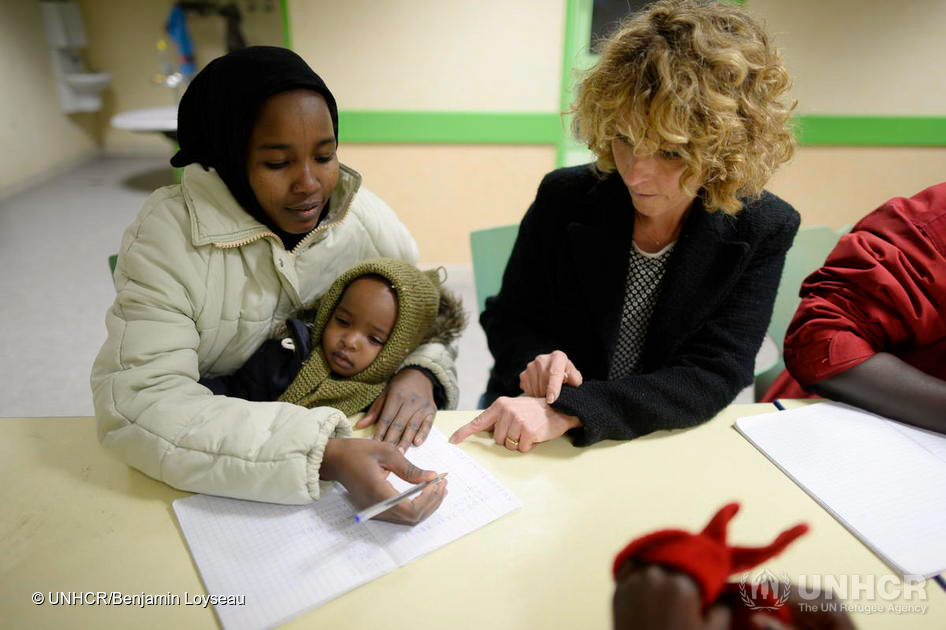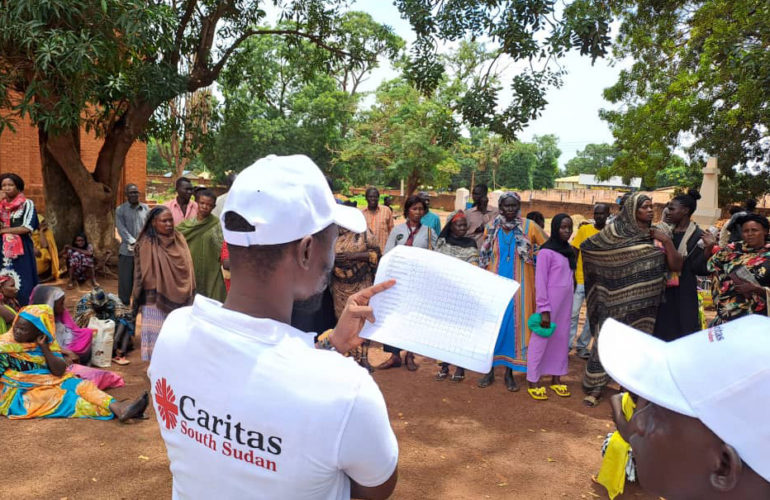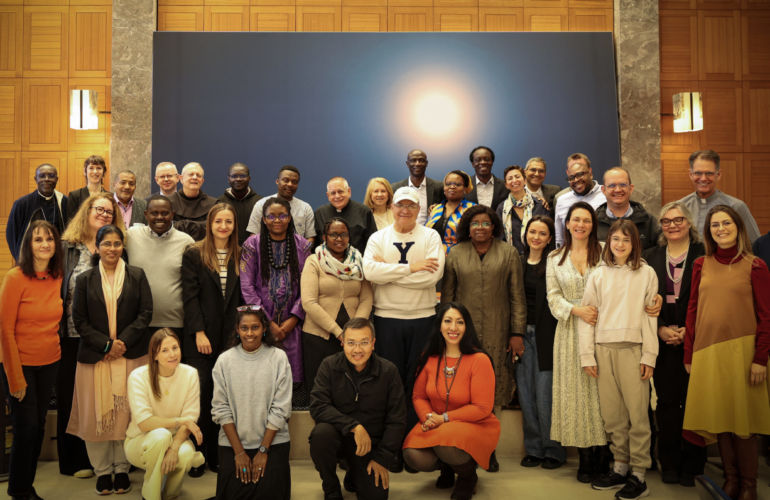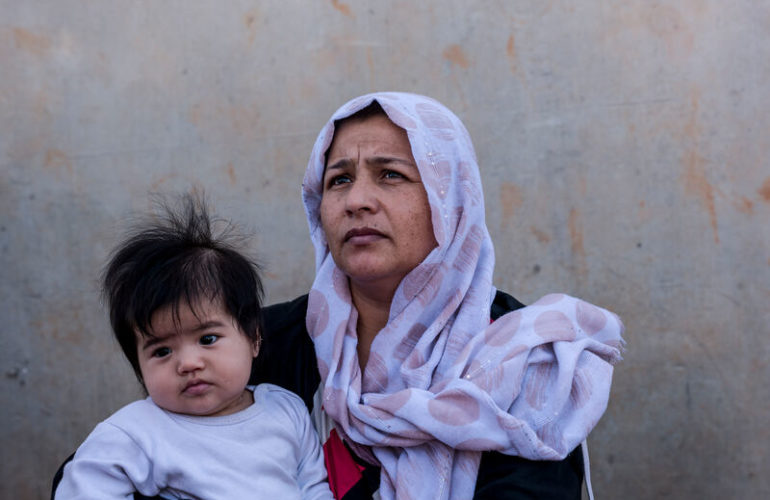ICMC Europe advocates for better, more open, rights-based European policies on migration and asylum. From its Brussels office, it engages in dialogue with European law- and policy-makers, advocates before EU institutions, and promotes a more welcoming European Union that genuinely embodies the values upon which it was founded.
Much has changed over the past decade, but the work and commitment of ICMC Europe to promoting a welcoming European Union have not. In recent years, crises upon crises have shown a worrying lack of solidarity among EU Member States. In this context, ICMC Europe has consistently appealed for substantive leadership that upholds the rights and values – most importantly, the principle of solidarity – and the responsibility sharing that have been the European Union’s founding principles for 60 years.
The Treaty on the Functioning of the European Union states that “The policies of the Union set out in this Chapter and their implementation shall be governed by the principle of solidarity and fair sharing of responsibility, including its financial implications, between the Member States. Whenever necessary, the Union acts adopted according to this Chapter shall contain appropriate measures to give effect to this principle” (Article 80).
ICMC Europe follows the debates and negotiations related to migration and asylum at the EU level, comments on proposals released by the European institutions, and advocates – often together with other civil society, human rights, and migration organizations – for these policies to be inclusive, effective and aimed at protecting the life, dignity, and rights of refugees, migrants, and asylum seekers.

Advocating for More and Better Refugee Resettlement
Refugee resettlement has a vast lifesaving potential and is one component of a comprehensive and durable approach to protecting refugees. ICMC Europe has advocated for a more conspicuous role of the European Union in resettlement efforts for more than a decade. Key aspects of this advocacy work relate not only to ensuring that the Union welcomes more refugees, but also that the programs are carried out in a manner that facilitates the integration of refugees in their new communities.
Since 2007, ICMC Europe has called for more solidarity among EU Member States and towards countries of first-asylum. This solidarity finds concrete expression in the Union’s increasing resettlement commitments, which have gradually grown from 10,000 in 2008 to 50,000 in 2018.
ICMC Europe advocates before EU Member States for more resettlement and complementary admission pathways for people fleeing war and persecution, particularly those most vulnerable.
Since 2016, when the European Commission prepared a proposal for a European Union Resettlement Framework, ICMC Europe has been demanding that resettlement is considered a humanitarian instrument, and not a migration management tool that prevents refugees from accessing protection.
In 2019, at the first Global Refugee Forum – a year after the adoption of the Global Compact on Refugees – ICMC Europe and partners urged the EU Member States to do more. Although it welcomed their commitment to resettle 30,000 refugees in 2020, it noted that such a figure amounts to only 1.6% of the global resettlement needs, far below the capacity of the EU as a wealthy region, and at odds with the EU’s status as a major international humanitarian actor.
Working Together With a Wide Range of Actors
Since 2007, ICMC Europe, the UN Refugee Agency (UNHCR) and the UN Migration Agency (IOM) have worked together to strengthen and increase EU resettlement through the development of the European Resettlement Network. The Network connects a variety of actors with a shared commitment to refugee resettlement and protection.
Successful resettlement incorporates a wide range of activities, from initial identification and registration of refugees to pre-departure arrangements and subsequent reception and integration in local communities. Linking these dimensions together makes resettlement a solution that works for both refugees and their new communities. Multi-stakeholder partnerships with civil society organizations are central to this success, as is public support and improved mechanisms for integrating resettled refugees into local communities.
Since 2012, ICMC Europe has worked with local authorities and municipalities to develop a network of resettling actors, the SHARE Network. The Network connects local communities and authorities at different levels. It helps them work together and plan for arrivals, taking into account the specific needs and potential of the refugees settling into the community.
Whether a big city or a very small rural town, each community can offer a haven and new life to resettled refugees. ICMC Europe encourages countries and communities that are new to resettlement to take on the challenge and provides them with the support and expertise they need.
Opening Complementary Admission Pathways
ICMC Europe advocates for increasing complementary admission pathways for refugees, such as humanitarian corridors and community-based sponsorships. They allow local communities, volunteers, and often churches, to actively engage in receiving refugees. This entails many activities, including finding and furnishing housing, offering language courses, facilitating participation in community activities, and providing labor market orientation. Such ‘all society’ approach is critical if integration is to be enhanced while countering anti-migrant sentiments. Private sponsorship promotes welcoming communities, includes a wide range of actors with diverse expertise, and creates supporting structures in smaller towns.
Building upon successful experiences of private sponsorships – such as the humanitarian corridors in Italy and France – ICMC Europe encourages a wide variety of actors in European countries to create conditions for these programs to take place. It does so by providing groups interested in taking part in private sponsorships with different options on how to structure such programs, while clearly defining roles and responsibilities.
ICMC Europe consistently advocates for these complementary admission pathways for refugees to be an addition to existing resettlement programs, so they offer more protection places to refugees who have no options in their country of first asylum.
Seeking an Urgent Solution for the Greek Islands
Over 1,800 unaccompanied refugee and migrant children were living on the Greek islands as of March 2020, many of them homeless and enduring inhumane living conditions.
Since the 2016 agreement between the EU and Turkey aimed at containing prospective asylum seekers from reaching EU’s territory, thousands of asylum-seekers, refugees, and migrants remain trapped in Greece, many of them in the islands of Lesbos, Chios, and Samos. The reception facilities in the so-called ‘hotspots’, originally planned to accommodate around 6,000 asylum-seekers, are hosting almost 40,000 people.
In March 2020, ICMC Europe joined several human rights and migration organizations to demand that EU Member States urgently relocate these vulnerable children out of Greece, taking into account family links and their best interest.
For a Transparent and Effective Funding Mechanism for Migration and Asylum
A new EU Asylum and Migration Fund (AMF) will enter into force as of 2021. It involves a budget of 9.2 billion euros for the period 2021-2027, with the goals of supporting “fair and efficient asylum systems,” guaranteeing “safe and dignified returns of third-country nationals,” and harmonizing “high standards in the field of asylum, reception, and integration.”
ICMC Europe calls on legislators to ensure that the new funding instrument contributes to more humane, transparent, and effective asylum and migration policies.
Considering that reception and integration are in many cases the responsibility of local governments and civil society actors, ICMC Europe requests that ‘smaller actors’ have more direct access to the Asylum and Migration Fund. As demonstrated by the SHARE Network experience, civil society organizations, and regional and local authorities, working in partnership, are crucial to making successful integration a reality on the ground.
The new Fund must ensure meaningful collaboration and partnerships with civil society organizations and guarantee effective coordination and resourcing for integration across relevant EU funds. It is also important to avoid creating funding gaps between different instruments, with a particular concern for funds reserved for integration programs.



